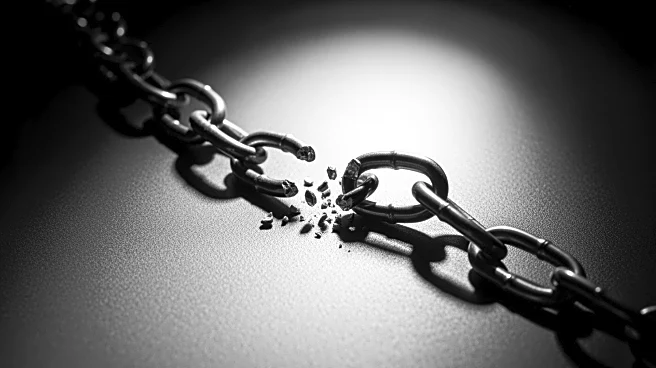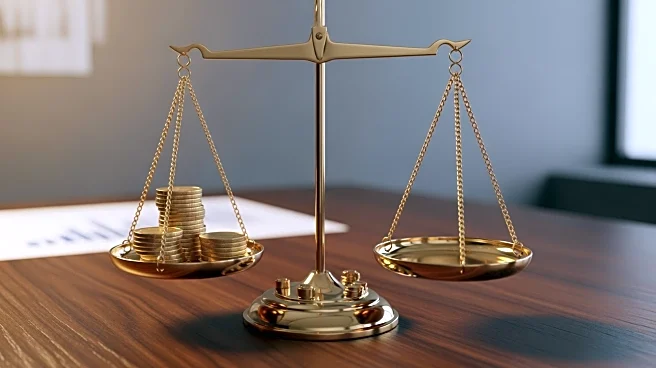What's Happening?
The United States, under the administration of President Donald Trump, has imposed sanctions on Francesca Albanese, the United Nations Special Rapporteur on the occupied Palestinian territories. The sanctions are
a response to Albanese's reports and statements accusing Israel of genocide in Gaza and calling for international accountability. Albanese's work has included naming companies allegedly involved in supporting Israel's military actions, which she describes as an 'economy of genocide.' The sanctions freeze her U.S. assets and restrict her travel, reflecting the U.S.'s strong opposition to her findings and recommendations.
Why It's Important?
The sanctions against Albanese underscore the U.S.'s commitment to defending its ally, Israel, against international criticism. This action may deter other UN officials from pursuing similar investigations, potentially impacting the UN's ability to hold countries accountable for human rights violations. The move also highlights the U.S.'s influence over international bodies and its willingness to use economic measures to protect its geopolitical interests. The situation could strain U.S. relations with other countries that support Albanese's work and the broader international human rights framework.
What's Next?
The sanctions may lead to diplomatic fallout, with other countries and international organizations potentially condemning the U.S.'s actions. Albanese has vowed to continue her work, which could result in further confrontations with U.S. officials. The situation may prompt discussions within the UN about the independence and protection of its special rapporteurs, as well as the role of international law in addressing complex geopolitical issues.
Beyond the Headlines
The sanctions raise ethical questions about the balance between national interests and international human rights obligations. They also highlight the challenges faced by human rights advocates in addressing contentious geopolitical issues. The situation may influence future appointments and the perceived impartiality of UN special rapporteurs, affecting their ability to conduct independent investigations.









